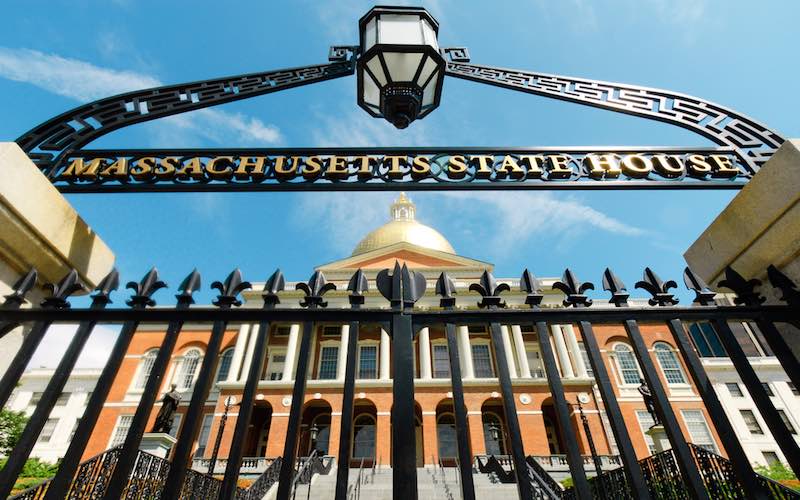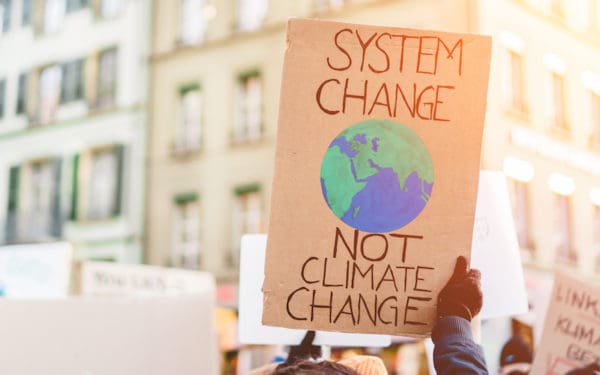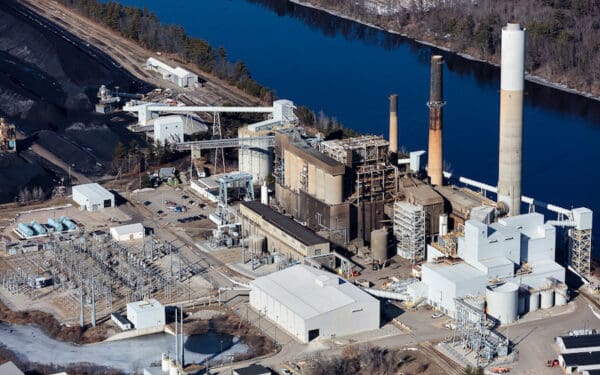
Despite overwhelming support from legislators, Governor Baker vetoed climate and justice legislation. Photo: Zack Frank via Shutterstock
Last week, Massachusetts legislators overwhelmingly passed critical climate and justice legislation. This bill pushes the Commonwealth to follow the latest science and meet its climate goals while also putting us on a path to a more equitable future. Another benefit of this legislation? Potentially kicking off a justice-oriented recovery from COVID-19 in Massachusetts.
Despite all of these benefits, Governor Baker vetoed the bill – choosing not only to ignore sound science, but also to let decades of racist policy targeting low-income, Black, and Brown communities go unchallenged. We are running out of time to address the climate crisis. But, with the 2020 legislative session now over, lawmakers are unable to override Governor Baker’s veto and must wait to pass this critical bill.
Massachusetts Needs – and Wants – Climate Action and Environmental Justice
The majority of Massachusetts residents want the state to take action on climate. The Commonwealth also has a long history of climate leadership – passing one of the first climate laws in the country in 2008. Earlier this year, Governor Baker even announced that Massachusetts would reach net-zero emissions by 2050 (this target is critical for avoiding the worst impacts of climate catastrophe).
But State leaders still lack a clear plan to reach this milestone. The climate bill would have given us that plan, outlining a roadmap to ensure Massachusetts took the latest science into account and created a comprehensive plan to lower emissions.
The bill would have also codified important environmental justice language into law. Current state policy puts low-income, immigrant, and communities of color in harm’s way when it comes to pollution from freeways and industrial plants. It also denies them a voice in the siting of new industrial projects – like power plants and substations – that impact their neighborhoods negatively. The climate bill would have ensured that neighborhoods already overburdened by pollution are not left behind during a clean energy transition.
A Clean Energy Transition Could Bolster Economic Recovery from COVID-19
Taking steps to transition to a clean energy economy is more critical now than ever. Not only must we lower emissions to combat ever-worsening climate change, but our economy is taking a heavy hit from COVID-19. Putting people to work in the burgeoning clean energy sector could bolster our economic recovery.
Fossil fuel jobs have been declining for decades, while work in clean energy is on the rise. COVID-19 has hurt these numbers, but state laws can help turn them around. By implementing smart policy, Massachusetts could meet its climate goals, lower pollution, and jumpstart the economy. Energy efficiency, in particular, employs nearly 100,000 people, with the potential to put more people to work while lowering our energy bills and the state’s climate-damaging emissions.
Governor Baker’s Veto Lets Down Massachusetts Residents
By vetoing this bill, Governor Baker is abdicating his responsibility to Massachusetts residents. In particular, he’s turning his back on low-income, Black, and Brown communities at a time when these neighborhoods are bearing the brunt of COVID-19’s health and economic impacts. (Communities of color are also hit harder by climate impacts like heat waves.)
Climate change is accelerating, with its harms worsening every year. Massachusetts is experiencing hotter heat waves, more severe storms, and dangerous sea-level rise. State leaders need to take this threat seriously, now, rather than continue to kick the can down the road.
We Must Pass this Bill Next Session
Only with a concrete plan to lower emissions and empower environmental justice communities can Massachusetts grow its economy and protect its residents from the worst impacts of the climate crisis. It’s clear that Governor Baker has no plans to get this done on his own.
Along with our community partners, I’m calling on legislators to immediately refile and pass this critical bill. While Governor Baker may want to sidestep accountability on climate action and environmental justice, with your help, we’ll ensure Massachusetts still takes action.



